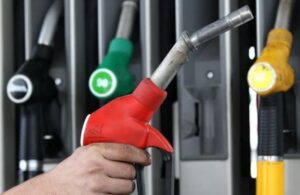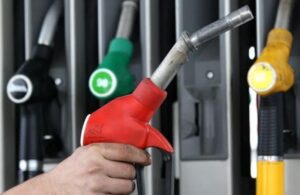
China’s total overseas non-financial direct investment (ODI) in January-February rose 9.1 percent year-on-year to $22.97 billion, the Ministry of Commerce said.
The amount of money invested in states along the Belt and Road rose 17.6% to $5.52 billion, Xinhua news agency quoted the ministry as saying.
As reported, by the end of 2024, the total volume of Chinese ODI increased by 10.5% to $143.85 billion.

On March 22-23, the cost of fuel on the steles of premium networks of filling stations OKKO and WOG decreased for diesel and gasoline A-95 by 5 UAH/l – to 52.99 and 53.99 UAH/l respectively, for liquefied gas (LPG) – by 3 UAH/l, to 35.48-35.49 UAH/l. The companies announced this on their Facebook pages on Saturday.
“Fuel prices are valid when refueling at all filling stations of the network (…) are valid when buying at “Gamanets PRIDE” up to 500 liters”, – noted, in particular, in WOG.
In turn, according to enkorr, the Kiev network of filling stations KLO from March 22 to 24 reduced prices for light petroleum products by 5-7 UAH/l depending on the brand, for LPG – by 2 UAH/l. Discounts are valid only upon presentation of a coupon at the cash desk.
According to enkorr, since the beginning of the week the trend of cheaper fuel has started in retail chains. In particular, the cost of fuel, depending on the operator and type, has decreased to 2 UAH/liter.

The residential real estate market in Montenegro in 2024 showed a significant increase in prices for both apartments and houses. The average cost of housing in new buildings increased by 20%, reaching EUR 1,844 per square meter.
Experts predict continued growth in real estate prices in Montenegro in 2025, especially in areas with developed tourist infrastructure. Demand for luxury properties in coastal areas is expected to remain high, leading to further price increases.
Buyers are advised not to postpone their decision to purchase real estate, given the current market trends.

Rains are expected on the night of March 23 in Zakarpattia and Ivano-Frankivsk regions, and on Sunday afternoon in western, Zhytomyr and Vinnytsia regions, while the rest of Ukraine is expected to be without precipitation, the Ukrainian Weather Center reports.
Southeast wind, 7-12 m/s, gusts of 15-20 m/s during the day in Rivne, Khmelnytsky, Chernivtsi, Zhytomyr, Vinnytsia and Kyiv regions. Temperatures at night will be from 1° below zero to 4° above zero, in Transcarpathia and Prykarpattia 1-6° above zero; during the day 9-14° above zero, in the Carpathians 5-10° above zero.
No precipitation in Kyiv on March 23. Southeast wind, 7-12 m/s, gusts of 15-20 m/s during the day. The temperature will be 1-3°C at night and 11-13°C during the day.
According to the Borys Sreznevsky Central Geophysical Observatory. Borys Sreznevsky Central Geophysical Observatory, in Kyiv, for the entire period of observation on March 23, the highest daytime temperature was 20.4°C in 1913, the lowest nighttime temperature was -17.3°C in 1942.
On Monday, March 24, moderate, sometimes heavy rains are expected in the western and northern regions, light rains in most of the central, Odesa, and Mykolaiv regions, and no precipitation in the rest of the country.
Southeast wind, 7-12 m / s, during the day in Ukraine, except for most of the western and eastern regions, gusts of 15-20 m / s. The temperature will be 2-7° Celsius at night, 9-14° Celsius during the day, 11-16° Celsius in the southern and central regions.
It will rain in Kyiv on March 24. Southeast wind, 7-12 m/s, gusts of 15-20 m/s during the day. The temperature at night will be 4-6° Celsius, during the day 11-13° Celsius.

Mass protests continue in Turkey after the detention of Istanbul Mayor Ekrem Imamoglu, one of the main political opponents of President Recep Tayyip Erdogan; on Friday alone, 343 demonstrators were detained in nine cities, including Ankara and Istanbul, Radio Liberty reports, citing the Turkish Ministry of Interior.
Interior Minister Ali Erlikaya accused the demonstrators of trying to “disrupt public order and provoke chaos.” In addition to the protesters, 56 other people were detained separately for allegedly inciting unrest through social media.
Imamoglu was detained in the morning of March 19. He and about 100 other people were accused of corruption crimes and the creation of a criminal group that was engaged in extortion from businesses.
Imamoglu, whom the Republican People’s Party (CHP) is preparing to nominate as a presidential candidate, called the case politically motivated. On social media, he said the investigation was a “political coup” and called on citizens to fight back.
The Turkish Ministry of Justice claims that the case has no political basis.